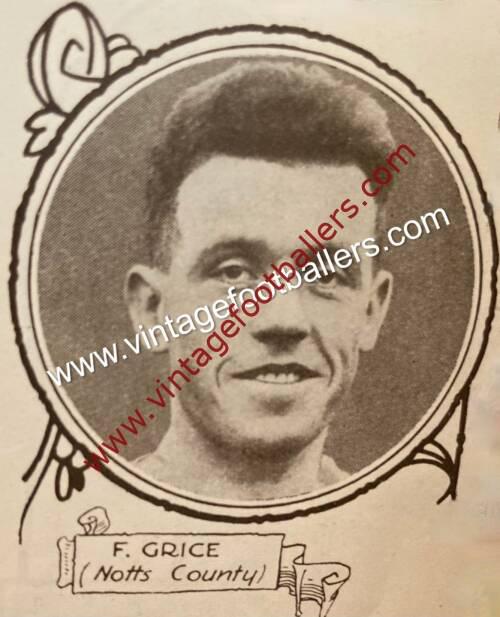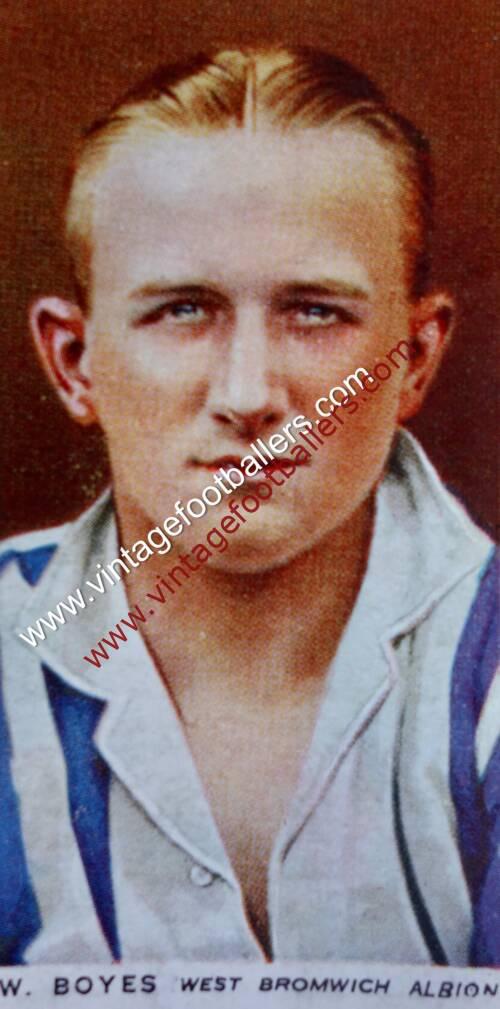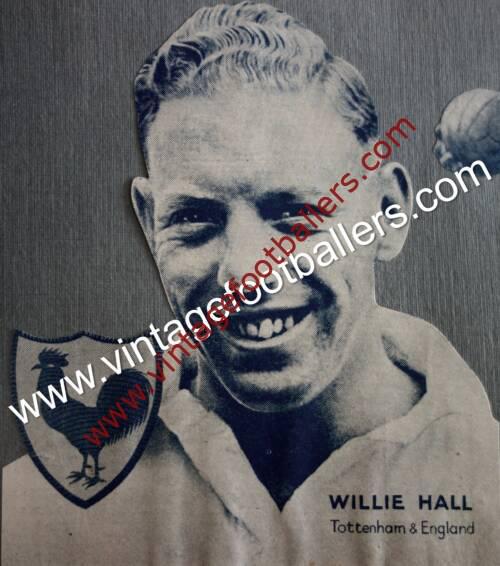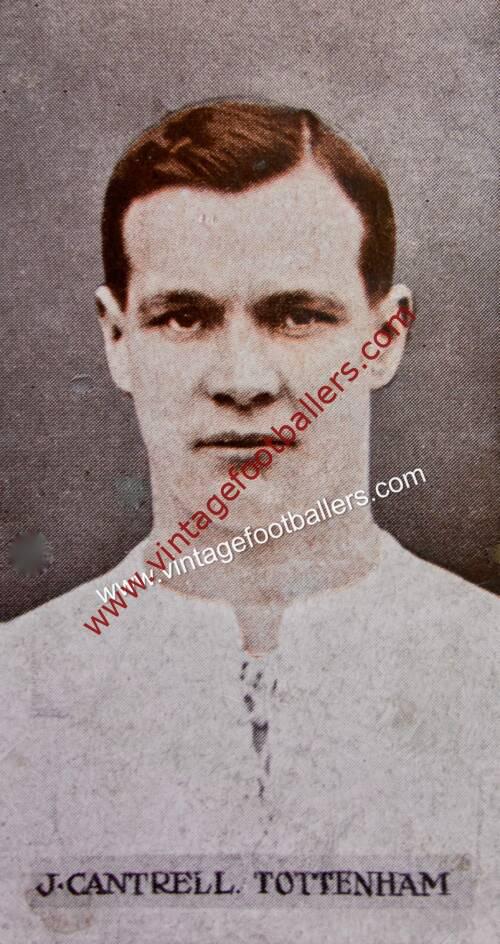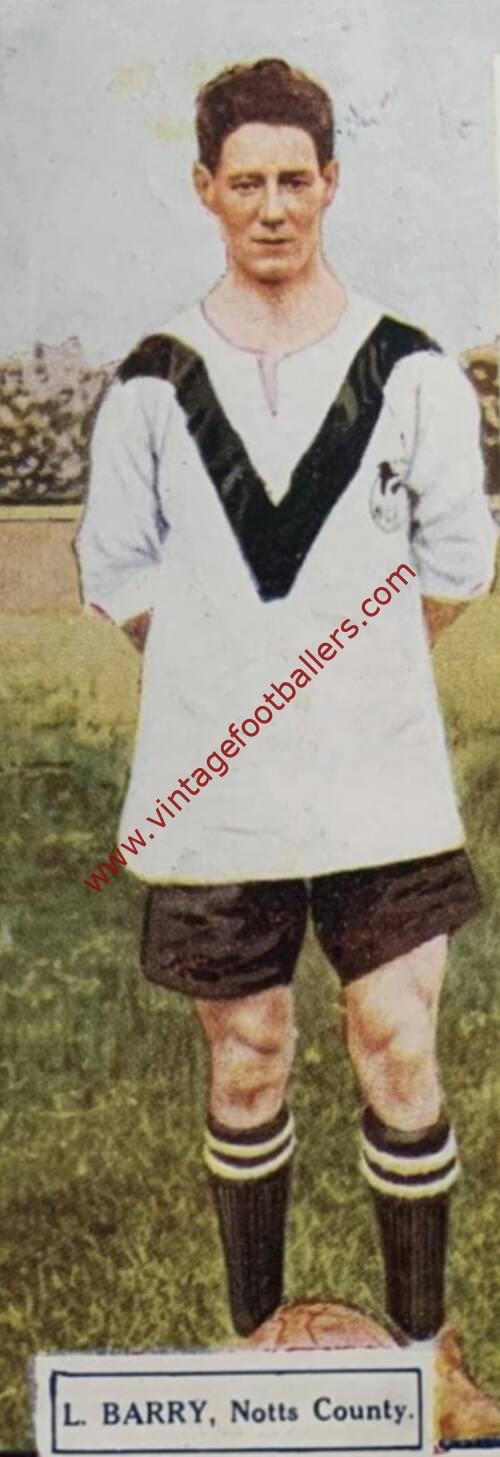Please choose your photo size from the drop down menu below.
If you wish your photo to be framed please select Yes.
Note: 16″x 20″not available in a frame.
Images can also be added to accessories. To order please follow these links
£8.95 – £49.95
Please choose your photo size from the drop down menu below.
If you wish your photo to be framed please select Yes.
Note: 16″x 20″not available in a frame.
Images can also be added to accessories. To order please follow these links
Derby born left half Frank Grice played junior football in the Army when at 16 years of age, having enlisted in The King’s Own Scottish Borderers and was a member of the regimental team which won the Army Cup.Grice also played for Aldershot Command. He played for Linby Colliery in 1928 before being persuaded by the famous Irish centre half and Army player Jack Jones to sign for Irish League club Linfield in 1929, spending two years in Belfast.
He made his debut for The Blues playing inside left at Ballymena in their 1929-30 campaign. Two weeks later he appeared in the final of the Irish Cup receiving a winner’s medal as his team triumphed 4-3 against Ballymena. Shortly after the final Grice purchased his discharge from the Services and became a regular on the Linfield team.
In the following season, 1930-31, Grice was in the Linfield side that beat Belfast Celtic 6-0 in the Gold Cup Final. He succeeded in collecting his second Irish Cup medal when Linfield defeated Ballymena 3-0 in the final at The Oval.
At that particular time, the rules governing the game prohibited anyone who had purchased his discharge from the Services from signing as a professional until he had fulfilled twelve months amateur status. Grice, having conformed to this timescale at Windsor Park, promptly ditched The Blues, returning to England to join Second Division Notts County in the 1931 close season, for whom he made his Football League debut against Oldham Athletic that September. He had five seasons at Notts County and latterly they were relegated from the Second Division, but in March 1936, after 6 goals in 109 appearances, he joined Second Division club Tottenham Hotspur.
His contemporaries while at White Hart Lane included players who, like Grice himself, would become managers: Arthur Rowe (Spurs); Vic Buckingham (WBA); JM McCormick (York City); and R Ward (Crewe Alexandra). During his spell with Spurs, Grice helped them progress to the 6th round of the FA Cup for two consecutive seasons, being defeated each time at their own ground by the ultimate winners Preston North End and Sunderland. After scoring once for Spurs in 55 appearances Grice returned to the Irish League to join Glentoran in September 1939 as the Second World War broke out and his Tottenham contract was canceled.
Grice made a scoring debut on 11th November, 1939 against Celtic at Celtic Park. He scored five goals in a 9-1 victory over Newry in the League and not only captained The Glens team which defeated Linfield 4-0 in the Co. Antrim Shield final but also scored. The following season the Shield again ended up in the Glens trophy cabinet with Frank scoring the only goal, in the defeat of Distillery. During this period Grice was appearing at inside forward and in this position he was selected to represent The Irish League against The League of Ireland at Dalymount Park, Dublin, on St. Patrick’s Day 1940.
Following The Oval’s destruction by German bombers in May 1941, Grice had a decision to make. In the knowledge that the War had followed him to Belfast, Frank packed his boots once more, opting this time to join Dundalk, just over the border in neutral Eire. In all, he had made 68 appearances for The Glens, scoring 36 goals over two seasons. However, this was not to be the last The Oval would see of Frank Grice.
Grice spent three seasons with Dundalk winning an FAI Cup medal and a Shield medal. His team were also the original winners of the Inter-City Cup (Bateman Cup). With the War having reached its inexorable end Grice, now well into his thirties, headed north once more, laden with medals won on football fields north and south while with Linfield, Glentoran and Dundalk. Were those trusty boots “hung up” for good, or would he seek employment at a club still in exile?
In 1946 Glentoran were based at Grosvenor Park, the home of Distillery, though always aspiring to return to The Oval. A Back-To- The-Oval Committee had been formed in the bleak days of 1945 as a direct result of the Belfast Blitz which had destroyed the stadium. Glentoran will always remember and pay tribute to the pioneers of the movement, J.T. (Toby) Mercer, (Chairman), J.K. Wylie (Secretary) and C. Corry (Treasurer) who had worked unceasingly with a host of other stalwarts in their quest to return the Red, Green and Black to their rightful home.
After a very brief period with Distillery in 1946, Frank Grice was on Glentoran’s books once again, not as a player this time but as Club Secretary. By all accounts, he proved to be a very able appointment. Now married to a local girl, he schemed to improve his status at The Oval.
On 21st February, 1948, Glentoran placed a large advertisement in the Ireland’s Saturday Night:
TEAM MANAGER WANTED – GOOD SALARY FOR FULLY QUALIFIED MAN
That “fully qualified man” actually drafted the advert. Surprise, surprise, he was on their very own doorstep all the time! Step forward Frank Grice, former player, current Secretary and soon to be full- time Manager of a sleeping giant. Appointed in May 1948, Grice, now in a position of some power, was determined to rouse the club from its post- war slumbers.
No trophies were won in Grice’s first season, rather it was a time of rebuilding, both of ground and playing staff in preparation for Glentoran’s return to east Belfast in August 1949. Who better to be at the helm at this critical time than the man who had been an integral part of the last Glentoran team that had played at The Oval in May 1941, twenty four hours before the ground was reduced to rubble by Herr Hitler’s bombers: Frank Grice was that man of destiny.
Glentoran won eleven trophies during Grice’s reign, a haul which included a League and Cup double in 1950-51. He had successfully blended his players into a rare and magical combination of chemistry and skill that still has those of us who were fortunate to witness their talents, raving about them some six decades later.
While Grice’s achievements on the managerial front are undoubted, two testimonies, nonetheless reveal something of the man’s devious and ruthless nature.
Bertie Wright and Danny Blanchflower are former players who need no introduction to Glentoran fans. Incidentally, Bertie celebrated his 100th birthday last 22nd October! This is a story related to me by Bertie himself. In 1948 Bertie was in the twilight of a most successful career with Glentoran while Danny was standing on the threshold of greatness. After a particular game Grice raged at his players in a tirade laced with foul language. Bertie and Danny took exception to the abuse and refused to play again until Grice apologized to the team for the language used.
Matters came to a head before the next game when Chairman, Johnny “Toby” Mercer, passed by the changing room just before kick-off to find that Bertie and Danny were still in their street clothes. Upon receiving their explanation, Mercer requested Grice to apologize to the players which he duly did.
The story does not end there, unfortunately. Next season, 1948-49, Manager Grice offered Wright reduced terms which he turned down. Eventually Grice agreed to give him the same terms as previously. Wright, rushing off to catch a train to Portadown where he lived, trustingly signed the forms in blank. When he received his pay packet at the end of the week Wright discovered that Grice had pulled a fast one, paying him the reduced terms he had refused originally. “It’s too late now, I have it in writing,” was all Grice would say when Bertie confronted him. Bertie left Glentoran at the end of the season having played a mere three games for the club he loved.
Blanchflower also suffered at the hands of the duplicitous Grice. Barnsley offered Danny an escape to Second Division football in England. In his autobiography, “The Double and Before”, Danny writes that he had an agreement with Glentoran that if he was transferred, he would receive a third of the fee. He met Angus Seed, manager of Barnsley at the Grand Hotel in Belfast accompanied by two Glentoran directors and yes, Frank Grice. Naturally, it was in his interests to know what the fee was.
Glentoran made him a final offer of seven hundred pounds, arguing that the deal Danny spoke of had been done by an official acting beyond his powers. I wonder who that official could have been? Danny felt cheated but accepted the offer so great was his desire to achieve full-time football in England. It is clear to me that Frank Grice had played a leading role in the cynical exploitation of Blanchflower. Danny became aware later that the transfer fee was six thousand pounds. You do the maths!
Grice’s eventual departure from The Oval was abrupt to say the least. In December, 1954 the Board agreed to release him to join Chelmsford Town as Secretary/Manager, a post he had occupied at The Oval since 1953 when Secretary David McWilliams left. Two days later Grice changed his mind about leaving, but the Board decided not to rescind its decision to release him from his contract.
| Weight | N/A |
|---|
